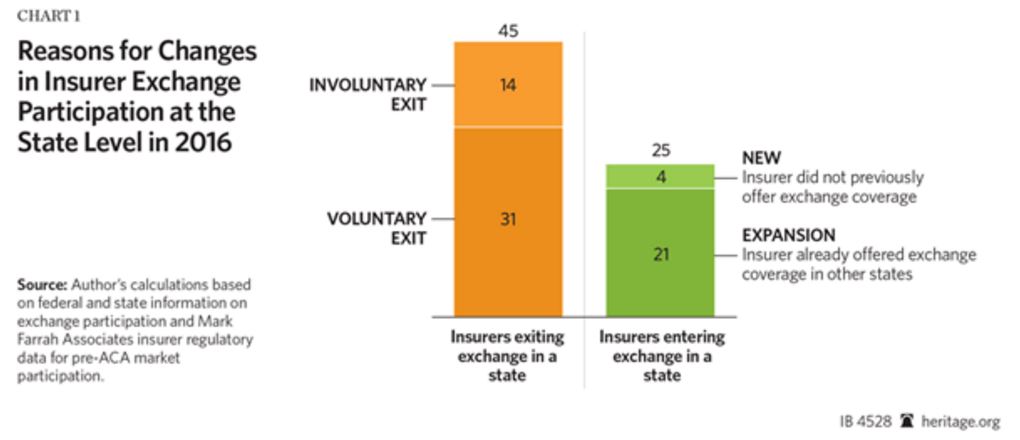Insurer Participation in Health Insurance Exchange Decreases
Humana predicted that it would to lose $176 million in 2016 while operating through the health insurance exchange while Aetna mentioned that it had lost $140 million in 2015.

- Health payers around the country may not be faring as well as hoped within the federal health insurance exchange. The Affordable Care Act may have had a negative impact on health insurance companies, as some are experiencing financial loss when operating through the health insurance exchange platform.

Merrill Matthews, a Resident Scholar at the Institute for Policy Innovation, has criticized the Affordable Care Act and its impact on health insurance companies around the nation. Insurers are losing money through the exchanges.
“Everything they’ve done is set up to fail,” Matthews told HealthPayerIntelligence.com. “They’ve got a pool in which people can enter the pool regardless of how sick they are and they can’t charge someone more for entering the pool as a sick person. That’s the definition of a pool that’s going to self-destruct.”
“The only thing that will save that is the subsidies,” he continued. “As long as the subsidies are there, you will have certain people going in. Roughly, I think about 7 million people are getting subsidies under the Affordable Care Act. That certainly makes for a huge pool.”
“But the structure of it is designed to fail. The subsidies keep people in. If Republicans are able to create some more affordable options outside of the exchanges that would still still be deemed qualified coverage and could accelerate the exchange demise.”
“It would allow health insurers to offer some bare-bones policies and other options that might be attractive to people, and somebody within the exchange could find it more affordable to choose a policy outside of it,” Matthews concluded.
Humana predicted that it would to lose $176 million in 2016 while operating through the health insurance exchange while Aetna mentioned that it had lost $140 million in 2015. According to a report from The Heritage Foundation, the number of insurers participating in the Affordable Care Act’s health insurance exchange has decreased in 2016.
The report outlines that, in 2015, there were 307 insurers offering Health Plans through the exchanges while, in 2016, there were only 287 payers operating through the ACA marketplace. Another analysis from the report shows that 22 states and the District of Columbia have smaller numbers of insurers offering coverage through the health insurance exchange in 2016 With a mere 10 states exhibiting more payers operating through the marketplace.
“Insurer competition can also be measured at the national level by counting the number of unique carriers offering exchange coverage in one or more states,” the report from The Heritage Foundation stated.
“By that metric, insurer exchange participation not only declined in 2016, but also is now less than in 2014. At the national level, the number of carriers offering exchange coverage in one or more states was 154 in 2014, increasing to 155 in 2015, but declining to 137 in 2016.”
Essentially, it looks like health insurance competition through the exchanges has declined significantly in 2016. Starting at the beginning of this year, there were 25 insurers who entered the market while 45 payers dropped out of the exchanges.
Additionally, it is important to note that 11 of the payers that left the marketplace were co-op insurers, which were created due to the provisions of the Affordable Care Act. The program was, unfortunately, found inadequate and 12 out of 23 insurance co-ops were abandoned by January 1.
In particular, the Health Republic Insurance of New York was losing capital quickly and policymakers shut the program down on November 30. As many as 215,000 consumers lost their healthcare coverage due to this move.
The reduced competition in the health insurance market has left Alaska and Wyoming with only one insurer offering coverage through the exchanges in 2016. The report from The Heritage Foundation predicts that participation in the health insurance exchange will further decline in 2017.
The Affordable Care Act and the federal health insurance exchange may need to undergo some revisions in order to support robust competition and offer a variety of options to consumers around the nation.
Image Credits: The Heritage Foundation

